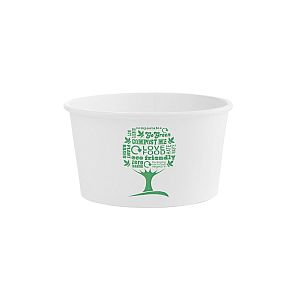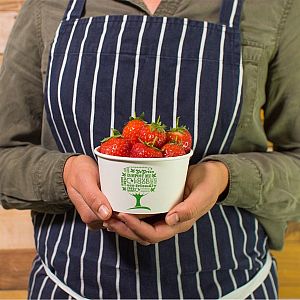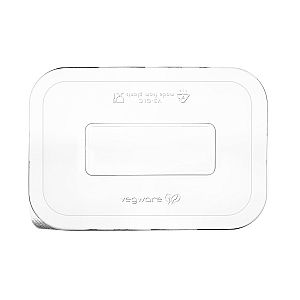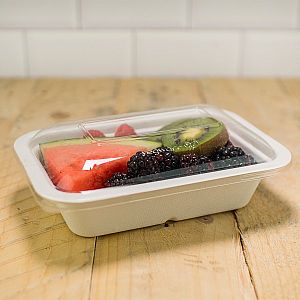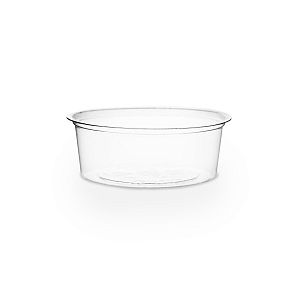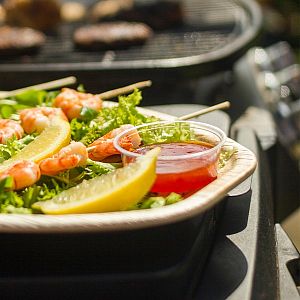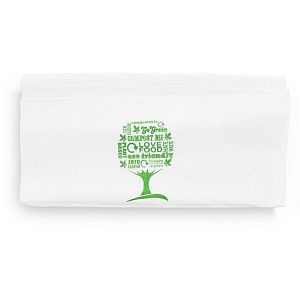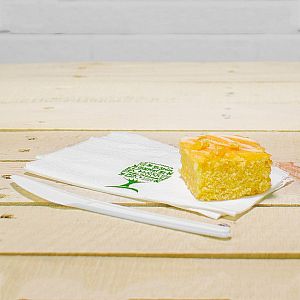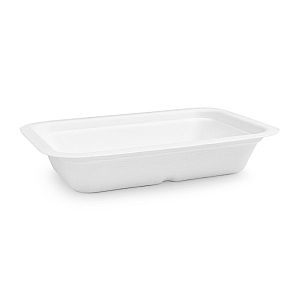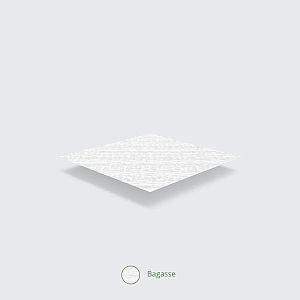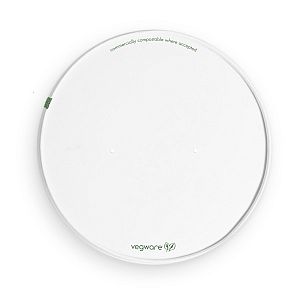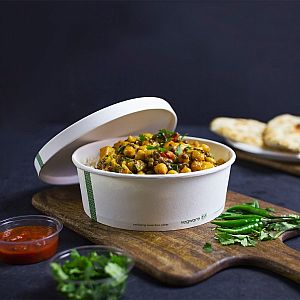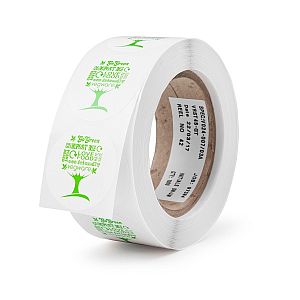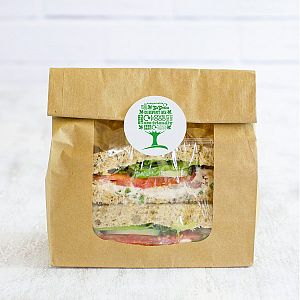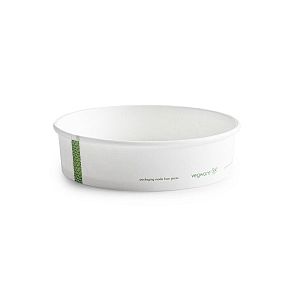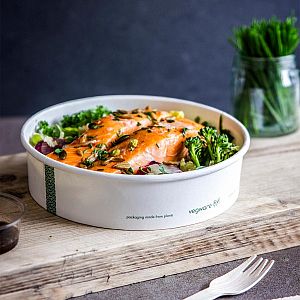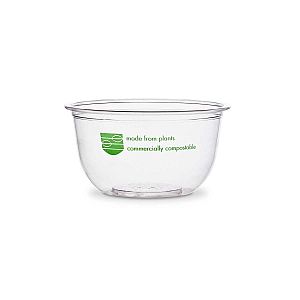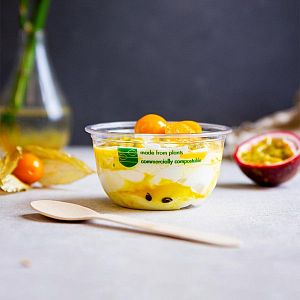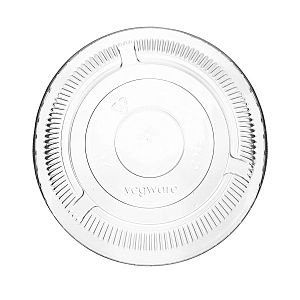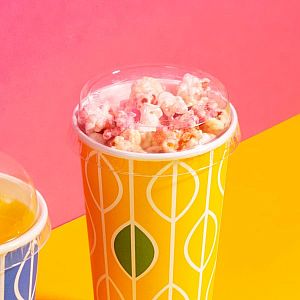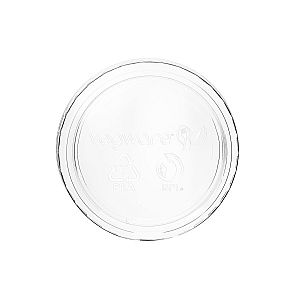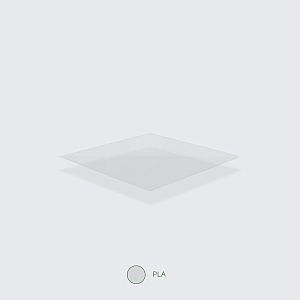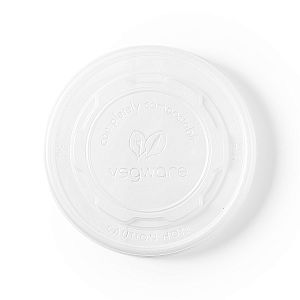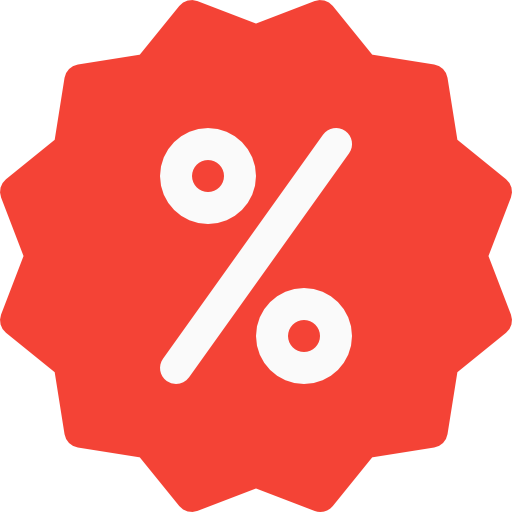By choosing compostables, foodservice businesses can actively drive change in recycling. Here’s everything you need to know.
What’s the point of disposables being compostable?
Compostable disposables are designed to be recycled in an industrial composting facility together with food waste. That means there’s no need for sorting, and the compostable cup, lid, burger box, knife and napkin can all go together without removing the ketchup and leftover chips. An extra bonus is that once food and disposables share one bin, other dry recycling bins are cleaner and easier to recycle.
Compostability isn’t best for all situations. For example, Vegware wouldn’t make compostable water bottles, as PET plastic already has a developed recycling infrastructure. But for food-contaminated disposables, compostability is a sensible solution.
How can Vegware help clients find composting solutions?
Our unprecendented engagement with the waste sector means Vegware is uniquely placed to help our clients realise their waste ambitions. Composting collections are still regional rather than UK-wide, but we are proud to be actively driving change. Our Environmental team are the UK’s experts on routes to commercial composting – we’ve been working on this full-time since 2012. Here’s an overview of the options:
- COMPOSTING REGIONS | Many waste collectors around the UK have an existing collection route taking used Vegware for commercial composting with food waste.
- VEGWARE’S CLOSE THE LOOP | To help more clients access commercial composting, Vegware has launched its own collections. This service is already in Scotland, Bristol, Gloucester and Worcester, with further expansion in development.
- ON-SITE COMPOSTERS | If your business has outdoor space, a use for compost, and staff to manage it, investing in an on-site composter can be an exciting and sustainable solution.
How do compostables solve food contamination?
Combining plastic and card in foodservice packaging creates massive recycling challenges, as highlighted by the recent coffee cup recycling debate. Food contamination is inevitable, so the result is incineration or landfill.
For disposables destined for serving food, it makes sense to use materials that can be recycled together with food. With compostable disposables, food isn’t contamination, it’s a vital ingredient in the composting process.
What’s wrong with recyclable?
Everyone likes the word ‘recyclable’, but here’s some news which highlights the real challenges of recycling used ‘recyclable’ packaging.
The UK exports 70% of its paper and 66% of its plastic for recycling, with no idea if it actually gets recycled. China took a lot of exported UK recycling, but over the years discovered it isn’t good enough quality to recycle. Since January 2018, China has banned imports of household plastics, and only accepts cardboard and paper with less than 0.5% contamination. Other Asian countries are considering similar bans, to avoid becoming a dumping ground for unrecyclable waste. Food contamination is a major problem, and the British recycling industry worries that most UK card and paper won’t meet China’s standards.
What’s the learning here? That in reality, card + plastic + food isn’t recyclable.osting process.
What is Vegware made from?
Vegware makes catering disposables from plants. After use, they are designed for industrial composting with food waste. Vegware replaces conventional plastics with various plant-based materials. For example, PLA is a compostable material made from plants. PLA replaces the conventional plastic in coffee cup lining or sandwich windows, and it’s the clear material in our cold cups and deli containers. Our hot cup lids and cutlery are made of a high-heat version of PLA.
Reclaimed sugarcane fibre is another practical material we use for our clamshells, plates and bowls. Known as bagasse, it performs really well, keeping heat in but not trapping condensation. Plus, it’s renewable, a reclaimed by-product of the sugar industry.
Do plant-based materials work as well as plastic?
Absolutely. In the early days there were limitations, but not any more. Cafés can be confident that their plant- based disposables will function perfectly.
We only use water-based or vegetable-based inks for our custom printing, and the print finish is great.
What’s the difference between biodegradable and compostable?
Same process, different breakdown speeds. Forget the term biodegradable, as it tells us nothing about timescales (wood is biodegradable, but a log cabin can stand for generations). Compostable means something can break down in under 12 weeks and is therefore suitable for industrial composting.
Make sure your disposables supplier has compostability certification – that’s the real guarantee.
Vegware holds the most extensive compostability certification of any UK packaging supplier.
What are composting conditions?
Compostable packaging needs to be in composting conditions in order to compost. Industrial composting creates the perfect balance of microbes, moisture and warmth, so that compostable packaging can be included in food waste recycling.
Home composting conditions vary with the skill of the householder, so we don’t make any claims there, but there have been successful trials using hot compost bins.
What’s the point if I can’t compost it?
The earth has finite resources. Disposables are used for such a short time, so it makes sense to switch to renewable materials, reserving conventional plastics for applications where they can’t be easily replaced.
Lots of people enjoy using plant-based materials, knowing they are a simple way to reduce carbon and help their business go green.
Which bin should it go in if I can’t compost it?
Vegware’s compostable catering disposables are designed to biodegrade in under 12 weeks in commercial composting, which provides the perfect balance of microbes, moisture and warmth. Our Environmental team offer unparalleled support – see question 2, ‘How can Vegware help clients find composting solutions?’.
Home composting conditions vary with the skill of the householder, so we don’t make any claims there, but there have been successful trials using hot compost bins. Where there is no access to industrial composting facilities, used Vegware should be put in general waste. Vegware’s takeaway packaging is made from plants, using lower carbon, renewable, reclaimed or recycled materials, and these sustainability benefits still apply no matter what happens to them after use.
- Used Vegware should not be placed in standard recycling bins which collect paper, plastics and metals, as those materials go to a different type of sorting facility. Another reason is that food waste harms the quality of mechanical recycling – the same applies to any used foodservice disposables.
- General waste goes to either incineration or landfill. If Vegware is incinerated, energy is produced. Incineration studies from NatureWorks, a key materials supplier of ours, show that their PLA bioplastic produces more heat than newspaper, wood or food waste; also that it produces no volatile gases and leaves little residue. Some in the waste sector prefer plant-based materials over conventional plastics as they give off fewer toxic gases.
- In landfill, studies have shown that compostable packaging is inert and does not give off methane.
- Please do not litter – compostable packaging is not expected to break down when discarded in the environment, and is not a solution to marine pollution.
All about PLA.
PLA stands for polylactic acid. It is a plant-based compostable bioplastic. Vegware uses PLA for clear cold cups and deli containers, as well as clear windows and cup linings. It’s practical and sustainable, and makes your food and drink look great.
BENEFITS OF PLA
- Made from renewable plant materials.
- Light, strong, clear and food-safe.
- Lower carbon emissions in manufacture than oil-based plastics.
Like all Vegware products, PLA is commercially compostable where facilities exist.
All about Bagasse.
GREAT FOR YOUR FOOD
Vegware’s bagasse ranges includes an economic and sturdy selection of tableware and takeaway boxes in a range of shapes and sizes.
- The natural material does not trap condensation, so food stays fresh and crispy.
- Thinner than polystyrene, so stacks more efficiently.
GOOD FOR THE ENVIRONMENT
Bagasse is a brilliant eco alternative to polystyrene!
- Made from 100% reclaimed materials.
- Commercially compostable with food waste.
- Sugarcane is a renewable resource.
- Bagasse is sustainably sourced, Vegware is making use of a by-product which would otherwise go to waste.
Hot cup & lid size guide.
Use this chart, and the Series number in our product names.
Close the loop - with biobags.
Compostable biobags are vital to closing the loop, as they get composted together with your food waste. Conventional plastic liners need to be removed before composting, but shreds often remain and can pollute farmers’ fields. Switching from conventional plastic liners means rethinking your bin size, but it’s the only way to truly Close the Loop.
- Certified home compostable.
- Made responsibly in Europe from MaterBi, a plant material made from vegetable oils and thistle starch.
- No soil contamination.
RETHINKING YOUR BIN SIZES
- It’s not a straight swap from your size of liner.
- Pure food waste is heavy! Use smaller containers, up to maximum 30 litres. Rather than lifting full bags, tie the liner and tip the bin instead.
- Used Vegware disposables in your waste makes for lighter bins, so 70 or 80 litre bags should be fine.
- Our 140 and 240 litre liners are only for lining external wheelie bins.
Custom print.
Vegware’s in-house custom print service helps you brand our award-winning eco catering disposables.
DESIGN OPTIONS ARE ENDLESS!
Add special effects like embossing and foil stamps, or even a tear-off tab to transform your cup into a promo voucher or lottery ticket. Whether you use Vegware cups, food cartons or anything in between, Custom Print Cafe offers a full creative service to showcase your brand.
Describing your Vegware packaging.
Plants, not plastic.
Vegware plant-based catering disposables are made from renewable, lower carbon, recycled or relaimed materials, and can be composted along with food waste.
Once taken to composting, it will break down in a commercial composting facility in less than 12 weeks.
The EU single use plastics directive.
WHAT IS IT?
New far-reaching EU guidance aimed at reducing plastic marine pollution. It is based on the 10 single-use plastic items and fishing gear which account for 70% of marine litter in Europe.
“The European Strategy for Plastics is a step towards establishing a circular economy in which the design and production of plastics and plastic products fully respect re-use, repair and recycling needs and in which more sustainable materials are developed and promoted.”
WHAT IS GOING TO BE BANNED?
OXO-DEGRADABLE PLASTICS
Common in cold cups, cutlery, straws, and carrier bags, and often labelled ‘degradable’ or mis-sold as ‘biodegradable’. These are conventional plastics with an additive to make it fragment into small flakes, but are not suitable for recycling or composting.
EXPANDED POLYSTYRENE
Food and drink containers – also known as Styrofoam. Very common material in cups, clamshells, plates and bowls.
All PLASTIC CUTLERY, PLATES, STIRRERS and STRAWS
That includes plant-based and compostable plastics, as the Directive is based on how materials behave in the marine environment. Compostable packaging breaks down in commercial composting conditions which provide a perfect balance of microbes, moisture and warmth; these are different conditions to the sea.
WHEN DOES IT COME INTO FORCE?
2021 at the earliest, with different deadlines to achieve various goals. Agreed upon in 2019, EU member states have two years to put the legislation into their own national laws. In England, plastic drink stirrers will be totally banned from April 2020 and there will be restrictions on plastic straw availability. Scottish and Welsh governments look to consider similar measures.
REUSABLES PLUS VEGWARE
Environmentalists advise greater reuse, but acknowledge disposables have a place.
“A reuseable cup for your beer, but for your falafels, you should probably have Vegware.” – according to Richard Dixon, chief executive of Friends of the Earth Scotland.
Many clients now offer a reusable option and use disposables for situations where reusables aren’t practical.
With our expert environmental support and ever-growing trade access to composting, Vegware is uniquely placed to help clients achieve their waste ambitions.
Where composting isn’t possible, our plant-based materials perform well in incineration, producing energy but no volatile gases; in landfill PLA remains inert and does not emit methane.









